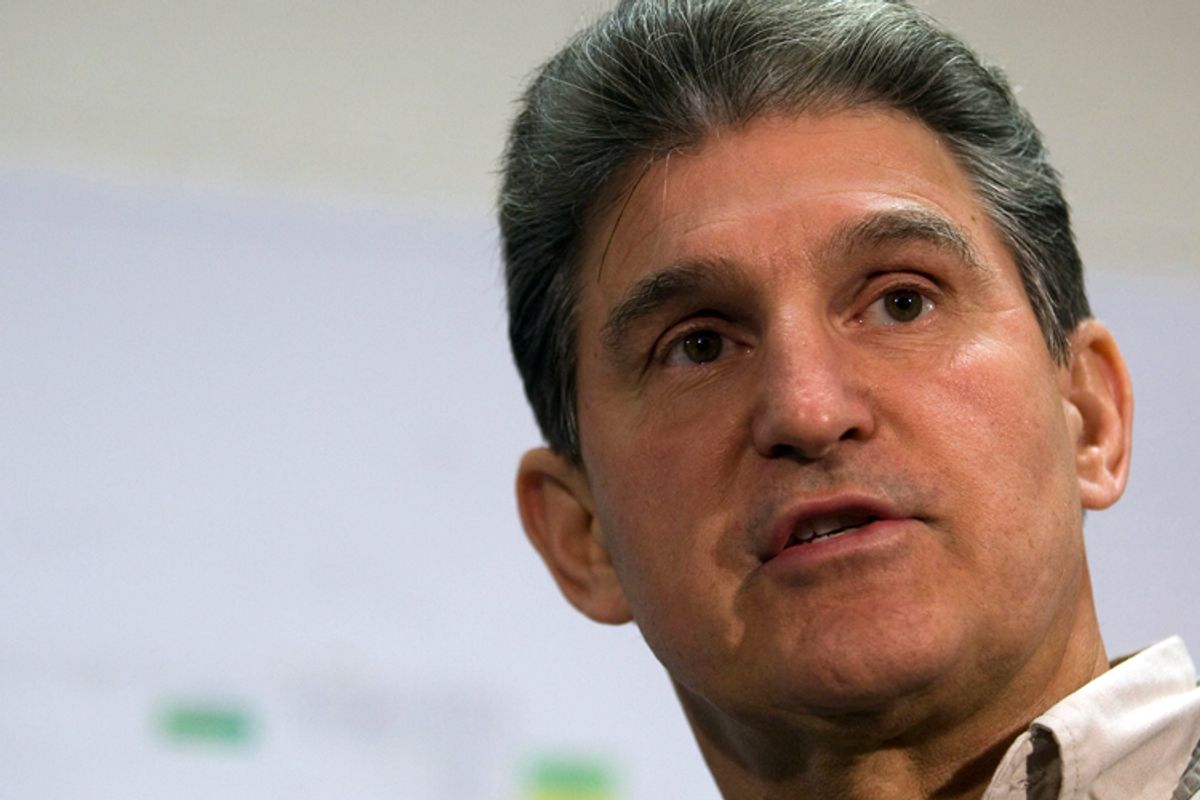West Virginia’s Democratic Governor, Joe Manchin, is sitting in the catbird’s seat these days. Even before the death of West Virginia’s longtime Senator Robert Byrd, Manchin was considered something of Byrd’s heir apparent, and that became even clearer with his announcement last Friday that he is "highly likely" to run to succeed Byrd. When and how will that election to replace Byrd be held? Well, the answer is that, as governor, it’s all up to Manchin himself.
State statute seemed to require that a special election be held this year, but West Virginia’s Secretary of State Natalie Tennant, citing case law, decidedtwo weeks ago that because the 2010 primary election had already happened, the election to fill the seat shouldn’t be until 2012 (when the seat would be up for its regularly scheduled election anyway). National Democrats heaved a sigh of relief, thinking that it would be better not to have one more seat to defend in what’s shaping up to be a difficult year.
But then Manchin started making noises that he’d prefer having a 2010 special election. This would allow Manchin to take advantage of his considerable popularity and would deny a Republican opponent the usual two-year ramp-up period that is de rigeur in today’s Senate campaigns. The legislature will ultimately have to authorize the electio -- but who has the power to call the legislative special session to set the election? Manchin, of course.
West Virginia election law is decidedly vague on what shape the election might take. One option might be to skip primaries and just have all the candidates run together in one pool on the regularly scheduled Election Day in November, with the winner taking all (similar to the disastrous special election in Hawaii’s 1st Congressional District). This too, would benefit Manchin, given his name recognition advantage over all other possible candidates, especially if multiple Republicans were to run and split the GOP vote.
There’s one other decision that Manchin has to make in the coming weeks, and that’s whom to appoint on a temporary basis (either through November 2010 or November 2012), until a special election is held. Manchin might opt for an elder statesman (like former Governor Gaston Caperton, now better known as president of the College Board) or for a younger up-and-comer to build the state’s Democratic bench (like Byrd’s former state director, Anne Barth).
Much of the state's political establishment, from the AFL-CIO to the Chamber of Commerce, has been urging Manchin to get it over with and appoint himself. But Manchin has loudly insisted that he won't do this -- a wise decision, if history is a guide. Not since Kentucky’s Happy Chandler in 1939 has a governor appointed himself to the Senate and gone on to be re-elected as a senator. The subsequent seven self-appointees all went down to defeat when first facing the voters, most recently Minnesota’s Wendell Anderson in 1977 (who tapped himself to fill the seat left behind when Walter Mondale became vice president).



Shares